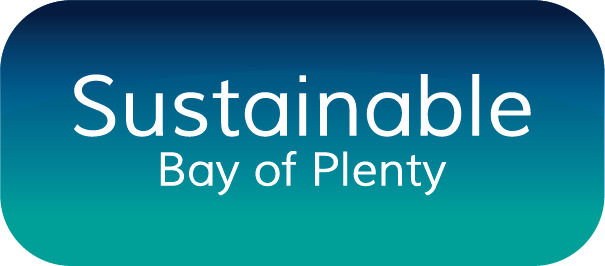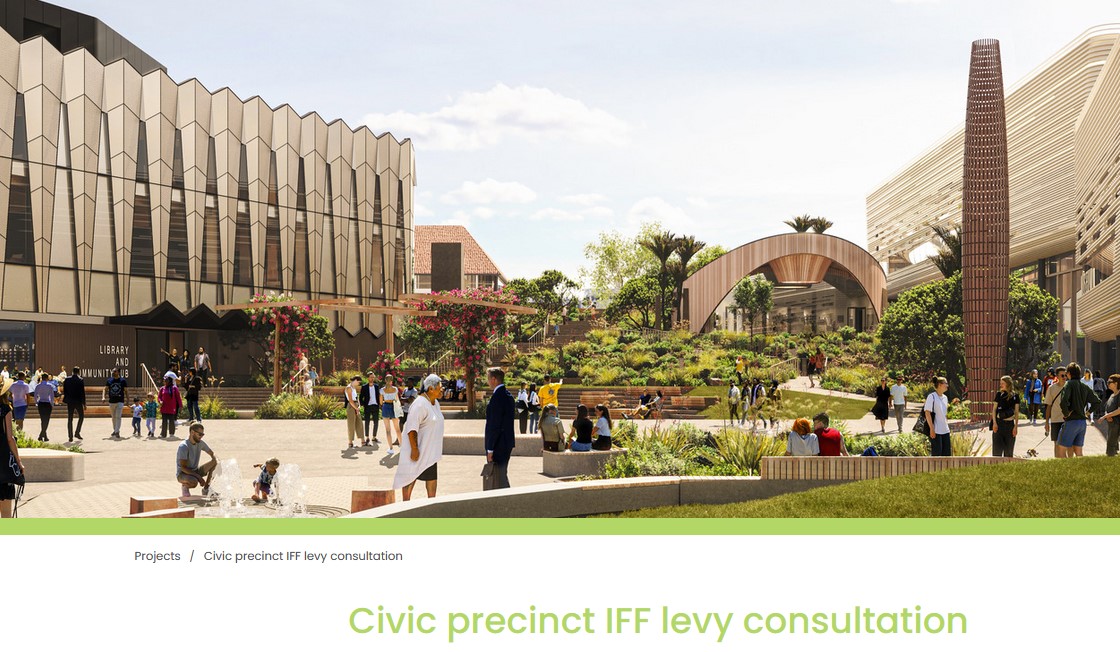Tauranga City Council is asking Tauranga residents if they prefer the Civic Precinct to be financed by an ‘IFF’ levy (option 1) or rates-funded debt (option 2).
Either way, the debt is repaid by ratepayers. However this is a much bigger topic than it may first appear, so we urge you to read this short post and then complete TCC’s survey by 5pm Friday 6 October.
We don’t support the council’s IFF option 1 for three reasons:
First, central government has limited the amount of debt a council can incur, to protect ratepayers from unsustainably high debt levels. Ironically, the current government created the IFF Act* to allow additional ‘off the books’ borrowing, effectively enabling TCC to breach its own debt limit!
Second, that means TCC no longer shows all its debt and all ratepayers’ annual payments in its accounts. This is both less transparent and unsustainable.
Third, paying for extra debt via rates is cheaper than via IFF. The Cabinet Paper states this explicitly: “the levy would need to fund larger interest payments than the counterfactual targeted rate”.
The bottom line is that TCC wants to take on more debt, but knows most people won’t support big rates increases. The IFF option is a convenient way for the council to take on more debt than they’d otherwise get away with.
The fact is that with IFF you will have to pay additional ‘levies’ on top of your rates, and your total bill (rates + levies) will be higher than if the same things were only funded by rates.
When you get your August 2024 rates bill, it’ll show your council rates, but you’ll also have to pay an extra IFF transport levy to help repay that “off the books” IFF debt.
Then if you choose the IFF option for the civic centre, you’ll get another levy added to your rates, so you’ll pay rates + transport levy + civic centre levy. And there could be more to come, as TCC suggested IFF to finance their proposed Domain Stadium.
Technically, IFF provides “grant funding received, not a loan by Tauranga City Council”. TCC just collects the levies on behalf of the lenders, and uses them to pay back the grant + interest to the financiers. Crucially, this is at a higher rate than council normally pays, although TCC told us “The final interest rate is considered commercially sensitive by the Crown”**.
For Tauranga’s IFF transport levy***, the grant itself is $177 million and ratepayers will need to repay $525 million over 30 years.
In the absence of transparency around the interest rates, Sustainable BOP has calculated that rates-funded debt would save ratepayers at least $100 million over that 30-year period, even at today’s relatively high interest rates (see p.30). We’re happy to refine that conservative estimate if TCC publicly discloses what they’ve signed ratepayers up for.
If the civic centre is also financed by IFF, ratepayers will owe another $1/3 billion of expensive ‘off the books’ IFF debt, on top of TCC’s official debt of $1.1-$1.2 billion (2023-24 estimate).
TCC itself states: “Council has looked to the Infrastructure Funding and Financing Act (IFF) to help with some of these balance sheet constraints but the cost of this also falls on the ratepayer. The impact of inflation and rising interest rates on the cost of living for our communities mean that there is limited room for rate rises or additional IFF levies (our ratepayers have constrained financial capacity, and many are already struggling with cost increases).”
We agree with that comment by the council, so think TCC should keep it simple and keep it sustainable. Don’t choose another IFF levy – choose option 2 instead.
Take the TCC Survey here: https://letstalk.tauranga.govt.nz/…/civic-precinct-iff..
Footnotes:
* Infrastructure Funding and Financing Act 2020
** LGOIMA response from TCC 28 February 2023
*** Infrastructure Funding and Financing (Western Bay of Plenty Transport System Plan Levy) Order 2022

